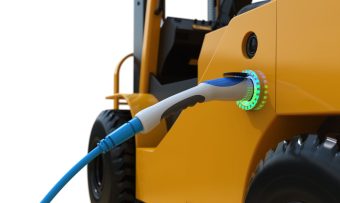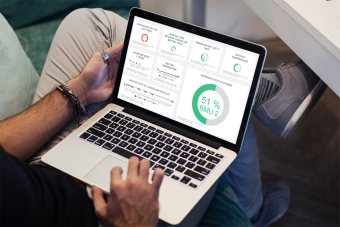
The Lidac Battery Management Company was founded in 2014. Considering that its team of experts gathered to work together even earlier, in 2010, it is safe to say that the company has over a decade of experience working with industrial batteries. It positioned itself with the concept of battery management, adequate servicing, and sustainable development, and this is exactly what the company offers to its service users and customers. Nikola Seratlić, founder and CEO of Lidac Battery Management, says it is possible to maintain and even extend battery capacity. In his interview for Energy Portal (EP), Mr Seratlić explains why that is both possible and important.
EP: What is the battery management concept based on?
Nikola Seratlić: This is the concept of three pillars of sustainable development – or 3Es – where our users can expect visible benefits in energy, ecology, and economy. Our whole operational concept and providing significant benefits for our clients would not be possible without the latest technologies, the know-how and the most advanced skills in maintaining industrial battery systems. The know-how and the complete technology, machines and equipment come from the United States of America, where we have acquired them, and today they are used all over Europe.
IN FOCUS:
- BOFFETTI, GLOBALLY RENOWNED QUALITY FROM THE ALPS
- THE CHARGE&GO NETWORK IS EXPANDING!
- ENVIRONMENTAL BOOK
EP: Considering that batteries degrade during their lifetime, is it possible to maintain their energy efficiency (capacity)?

Nikola Seratlić: Of course, with the help of new technologies and knowledge, it is possible to restore the battery’s passivated capacity, i.e., its energy efficiency. Since the battery is a chemical source of electrical energy, it is subject to constant chemical processes and reactions that take place inside it. It is impossible to stop the processes and reactions that affect the degradation of the battery. Still, it is possible to recover the battery’s passivated capacity, which occurred due to the aforementioned processes, but mostly due to inadequate maintenance and use. In this case, we are talking about lead-acid industrial batteries, which are still used most. Based on our experience, we can confidently say that it is possible to maintain the battery capacity until the end of the battery life or significantly extend its life in certain cases.
EP: You mentioned the 3E principle – the basic pillars of sustainable development. What do they mean for your user?

Nikola Seratlić: We are talking about the possible and visible benefits of our actions. The user of our services, such as long-term maintenance, servicing or revitalization of batteries, can expect benefits that can be valorized through direct financial savings, maintained and restored energy efficiency of the battery and a reduced amount of disposed of hazardous waste. Every user of our services has observed and confirmed all the advantages mentioned above.
EP: Bearing in mind the energy crisis in full swing, is it possible, with your help or with the help of modern technologies, to reduce the electricity consumption for charging batteries?
Nikola Seratlić: It depends on which batteries we are talking about. It is possible with some types of batteries. The best example is lead-acid batteries for towing vehicles, more precisely, electric forklifts. There are quite a few in our country, considering that all logistics, transport and production companies use these forklifts. For those types of batteries, our partners from Belgium have developed state-of-the-art process chargers that can reduce electricity consumption by up to 30 per cent for charging batteries used in electric forklifts, which you will agree is a substantial saving. If we add to that our regular maintenance and keeping the energy efficiency of the battery at the maximum level, then those savings in electricity consumption can reach up to 50 per cent.
Interviewed by: Nevena Đukić
Read the story in the new issue of the Energy portal Magazine RESPONSIBLE BUSINESS.



